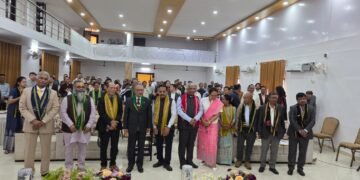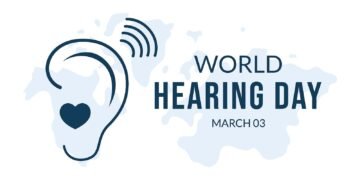As soon as Donald Trump took over as the 47th President of the United States of America, he took an aggressive posture by signing a host of executive orders.
Among the executive orders that he signed is one entailing the nation’s withdrawal from the World Health Organisation.
The others are, requiring federal workers return to the office full-time, revoking birthright citizenship and pulling the United States out of the Paris climate agreement.
Trump announced severe new restrictions on immigration and asylum in the US, declaring that he will send troops to the US-Mexico border and attempt to end birthright citizenship. He declared a national emergency at the southern border
The president signed pardons for 1,500 of his supporters who were part of the January 6, 2021 attack on the US Capitol by his supporters trying to overturn the 2020 election.
Trump repealed various executive orders promoting diversity programmes and LGBTQ equality.
He said that moving forward the US government will only recognise “two genders, male and female.”
Trump’s return has also raised apprehensions among H-1B visa holders.
The H-1B visa is a non-immigrant visa enabling US companies to employ foreign workers in specialised fields requiring advanced technical or theoretical expertise. It has been a critical pathway for Indian professionals in industries such as IT, artificial intelligence, and cybersecurity.
During his earlier term, Trump implemented policies that prioritised American workers over foreign talent.
In 2023, the majority of authorized H-1B recipients were Indians, with Chinese people coming in second. Those impacted by layoffs in the tech industry may find themselves rushing to keep their legal status under the current system.
Trump and Midde East conflict
During his campaign trail, Trump promised that after he gets elected, the Middle East is going to get solved.
The news of the agreement over Gaza has been received very favourably in the Arab world. And already, President Trump is being seen as the dynamic actor who was able to do what President Biden was unable to do for many months.
Israeli Prime Minister Benjamin Netanyahu said under Trump’s leadership, the best days of their alliance are yet to come.
President Mahmoud Abbas said Palestine is ready to work with Trump to achieve peace during his tenure, “guided by the two-state solution based on international legitimacy”.
US policy will depend on the fickle balance of power in the Middle East, which is more in flux than it has been in decades.
In his first term, President Trump’s Middle East policy culminated in the 2020 Abraham Accords, a series of bilateral agreements in which several Arab countries normalized relations with Israel.


























